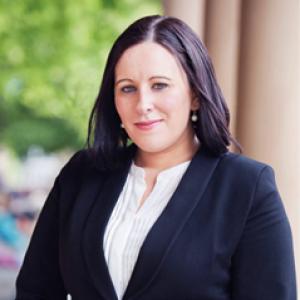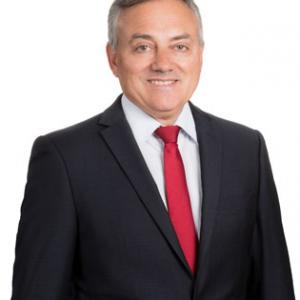Safeguarding Succession: Managing Key Risks in the Succession Plan – 5 program video webinar series
About the webinar series
No succession plan is without risk; however the effectiveness of its execution hinges upon how clients and their advisers anticipate and navigate these challenges. In this five part webinar series, learn directly from the leading experts on the key challenges that can arise when crafting the succession plan for your clients. Dedicated topics include managing super following the death of the member, managing the risks in the digital succession plan, as well as protecting client assets and minimising clawback risks from notional estate rules. It also includes a deep-dive into the practical ramifications of the recent decision of Owies, as well as how to trouble-shoot common errors in the succession plan.
The sessions were all delivered at our 14th Annual Wills & Estates Conference held in August 2023.
What you Get
This on demand webinar series includes the following components:
- Online access to the on-demand webinar programs. Programs average 55 minutes each in length.
- The programs were recorded in August 2023 and are available online for immediate viewing.
- Online access to the technical support papers and/or powerpoint presentations accompanying each program
The Programs
Program 1: Discretionary No More? The Future of Discretionary Family Trusts Post-Owies
The recent decision of Owies has thrown the future of discretionary family trusts into doubt by challenging the idea that trustees of discretionary family trusts have absolute discretion to distribute income for the benefit of one or more of the beneficiaries of the trust in preference to others. Lawyers must now grapple with the potential ramifications of this decision and what it means for their clients. To help understand these issues and their potential ramifications in more depth, this session will examine:
- What does ‘real and genuine consideration’ mean when trustees are exercising their discretion? How far does this extend?
- The facts in Owies, what led to the decision and its outcome
- What does Owies mean for the future of discretionary family trusts in Australia
- When will the court remove a trustee?
- Best practice tips in relation to what advice should be provided to clients following this decision when acting for both trustees and beneficiaries
- What steps should lawyers be advising their clients to now take to evidence the rationale behind trust distributions in the event of a future challenge
Program 2: Managing Super Following the Death of the Member
It can be common for lawyers to want to treat superannuation as yet another financial asset of a client to be dealt with in accordance with their overall succession planning instructions. However, the treatment of superannuation on the death of a member is very strictly regulated and one which can be misunderstood without a comprehensive understanding of the SIS Act. This session will dispel some of the myths held about superannuation by providing an overview of the relevant SIS provisions concerning treatment of superannuation on the death of a member and will cover:
- Who can (and who can’t) receive superannuation from the fund on the death of the member
- The definition of spouse, domestic partners and dependents for the purpose of SIS compared to tax law and other areas of practice
- The obligations of the executor or administrator vs the trustee of the fund
- What tax needs to be considered, including discussion of ATO Ruling 2011/77 in relation to step-children
- The requirements for valid binding death benefit nominations, who may constitute a valid nominee, how to check and drafting tips
- Practical case studies
Program 3: Digital Disruption: Mitigating the Risks in the Digital Succession Plan
One of the lasting effects on the commercial world arising from the pandemic has been the acceleration of digital transformation and use of technologies. As these changes have made their way to the ‘new normal’ of legal practice, how can succession lawyers ensure that the legal challenges associated with digital wills are mitigated? This session explores the legal challenges associated with digital wills and provides best practice guidance on ensuring the validity and enforceability of digital wills. It covers:
- The current status of legislation around Australia relevant to the use of technology in succession planning and anticipated legislative reform in this area
- Overview of other legal challenges associated with digital wills, such as questions around authenticity, identity and revocation – how does digital technology exacerbate these challenges?
- Spotlight on undue influence:
- definition and examples of undue influence in the context of digital wills
- how digital technology can increase the risks
- legal remedies available to address undue influence
- practical tips for succession lawyers to consider to manage the risks
- Best practices for ensuring the validity and enforceability of digital wills
- Recent judicial commentary on these issues across a range of jurisdictions including the case of Re Curtis [2022] VSC 621 and useful guidance for practitioners for dealing with such issues when they arise in practice
Program 4: Notional Estate: Protecting Your Client's Assets and Minimizing Clawback Risks for NSW Non-residents and Non-NSW Assets
Notional estate laws are a complex and often misunderstood area of succession law that can have a significant impact on the distribution of a deceased individual's assets. This session examines strategies for avoiding clawback of assets and provides best practice guidance on minimizing the impact of notional estate laws on clients' succession plans. It covers:
- Key features of notional estate laws and how notional estate laws can affect asset distribution
- Situations where notional estate laws may apply with a focus on the following:
- attacking the assets of non-NSW residents
- attacking assets of a NSW resident located outside of NSW
- Strategies for minimising the risks of clawback of deceased’s assets:
- key considerations for structuring an estate plan to minimize the risk of clawback
- assets held in family trusts and companies
- strategies for dealing with specific assets, such as superannuation and life insurance
- How to recognize potential issues before they become problems
- Can notional estate laws trump binding death benefit nominations? Lessons from Benz v Armstrong [2022] NSWSC 534
- Practical examples and lessons from recent cases
Program 5: Everyone Makes Mistakes: Trouble-shooting Errors in the Succession Plan
No lawyer sets out to make mistakes when drafting wills and estate planning documents. However, everyone is human and it can be common to discover mistakes when reviewing wills and other documents. This session shall focus on ‘what happens next’ when a mistake has been identified and shall look at:
- The types of mistakes that arise in wills and estate planning documents and the options available to fix mistakes outside of court processes
- Court orders:
- when is a court order required and how to seek this
- what evidence is required and how to disclose the mistake in court documentation
- The role of consent when it comes to rectifying potentially invalid wills - how far can consent get you and whose consent is needed?
- The potential legal and ethical issues which may arise - in what circumstances may a lawyer breach their duty by failing to discover a mistake earlier? Who should be notified, and when, on discovery of the mistake? Who should wear the cost of rectification?
- How the courts across jurisdictions have dealt with mistakes in wills and estate matters in recent times including Williams v Duerinckx Futures Family Trust [2022] TASSC 32, In the Matter of George Hardi Family Trust [2021] NSWSC 1584 and Application of Walker Corporation Pty Ltd [2022] NSWSC 1609
Presented By

Andrew Verspaandonk
Barrister, Green's List Barristers Melbourne, Vic
Nathan Yii
Principal Lawyer, Chartered Tax Advisor and SMSF Specialist Advisor, Nathan Yii Lawyers Melbourne, Vic
Kimberley Martin
Director, WMM Law Hobart, Tas
Paul Evans
Partner, Makinson d'Apice Lawyers Sydney, NSW
Asheetha Jelliffe
Partner, Bridges Lawyers Sydney, NSWSpecial Offer
The regular price for this webinar series will be $1210.
If you buy on or before 13 October 2023 you will pay only $990.
Enquiries/Assistance
If you need assistance or have an enquiry, please do not hesitate to contact our Customer Service Team on (03) 8601 7700 or email: [email protected]
